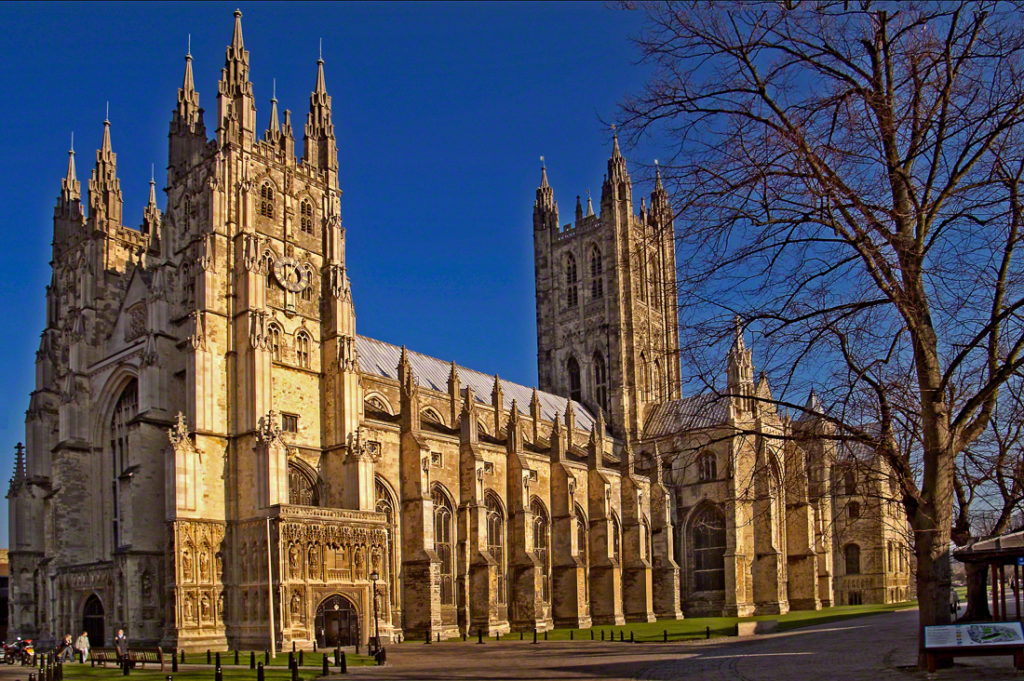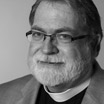Thoughts on Dr. Martin Davies’ Review of the Archbishop of Canterbury’s latest book, “Reimagining Britain”
“For the law possesses a shadow of the good things to come but not the reality itself, and is therefore completely unable, by the same sacrifices offered continually, year after year, to perfect those who come to worship.” Hebrews 10: 1 (NET)
One of the greatest truths and implications of the Resurrection of Jesus Christ is that we need no longer live in the shadows. The “types and shadows,” of which the author of Hebrews writes, in the Old Testament law and temple sacrifice are done away by the death and resurrection of Jesus Christ—once for all, and gloriously rending the curtain of the temple in two so that we NOW have direct access to the very presence of God (the holy of holies) (see Hebrews 10:19-22).
But it’s not only the author of Hebrews who speaks of this truth. Dr. Luke gives us a picture of defeated disciples walking away from Jerusalem into the shadows of what they had hoped, only to encounter the risen Lord Jesus. On the road to Emmaus, Jesus, risen from the dead, physically came alongside them and “unpacked” the scriptures to make sense of the reality of resurrection life breaking through the shadows. And when he broke bread with them their eyes were opened to see Him as our risen LORD and Savior offering us the same life! (see Luke 24:13-35). This resurrection encounter literally set their hearts on fire and gave them such courageous faith that they did a 180 and went right back to Jerusalem to proclaim a new day!
For followers of Jesus Christ, Easter and the Resurrection mean the end of shadows and the establishment of the reality! This reality is a life that Jesus calls “abundant” (John 10:10), that begins right now and lasts forever. In the light of Jesus’ resurrection and all his promises, the life we live on earth is a kind of “dress rehearsal” for the life to come in heaven which the Bible hints at as being on a level of infinitely more beautiful creativity and collaboration (for a great picture of this, see Dallas Willard’s The Divine Conspiracy). In the New Testament, the resurrection of Jesus Christ means that all shadows must now give way to the realities themselves: believers are God’s people chosen “to declare the praises of him who called us out of darkness into his wonderful light” (I Peter 2:9) and empowered by sharing in Christ’s resurrection life to put to death everything that corrupts and diminishes our life together (Col. 3:1-17).
It’s in light of this Easter truth that I wish to commend Dr. Martin Davie’s review of Reimagining Britain: Foundations for Hope, by the Archbishop of Canterbury the Most Rev. Dr. Justin Welby. You can find his whole review here. Like all fair and balanced scholars, Dr. Davie gives credit where credit is due—elaborating at great length what is good and helpful in Archbishop Welby’s Christian vision for Britain’s future. In fact, Dr. Davie points to the closing sentence of the last chapter of the book, where Welby concludes “The UK grew from Christian roots: my hope is that in the future it rediscovers the power of the narrative that has shaped it for so long and set its values so deeply.”
But as Dr. Davie notes, the policy recommendations in the book miss the very heart of the “power of the Christian narrative” that Welby points to—it misses the promise of the resurrection life that Jesus offers to you and me and every person in Britain right now! Archbishop Welby’s vision fails to address the urgency of choosing such a life in an increasingly secular and secularizing society and culture. As Davie notes, Archbishop Welby draws on the idea of “deep magic” from CS Lewis’ The Lion, the Witch and the Wardrobe as a way of describing “what makes for virtue…” But what Welby++ fails to reflect is the nature of this life which is “in Christ,” now and forever, for all who choose to live their lives as Jesus would and therefore become the salt and light that our secularizing culture so desperately needs.
Dr. Davie brings his point home as follows:
“If this is true, and as an orthodox Christian Welby must believe that is true, it follows that the one really big issue facing all people in this world, including those living in Britain, is whether or not they will spend eternity with God enjoying the life of his kingdom. Whatever else someone may do in their life, however successful their life may appear to have been, if they miss out on eternal life with God (what the Bible calls losing one’s soul) then their life as a whole has been a failure. As Jesus asks, ‘For what does it profit a man if he gains the whole world and loses his soul?’ (Matthew 16:26)
“This understanding of human life is not reflected in Reimagining Britain, which contains no reference to the idea that there is life beyond our life in this world. It is true that Welby refers to the description of God’s judgement in the parable of the sheep and goats in Matthew 25, but he uses the parable to illustrate our need to act according to our own British values in the matter of healthcare rather than a warning that we have to shape our lives so as to enter into eternal life. In Reimaging Britain as a whole both the truth that we are facing God’s judgement and the truth that we need to so live that we will enter into eternal life are simply ignored.” (emphasis added).
This critical omission of the connection between the life we live in Christ–and because of His very death and resurrection– and the life we live in this world, raises deep questions about the nature of the Archbishop of Canterbury’s vision of what life should be. Without this vital connection between heaven and here, is it truly a “Christian” vision? Or, is it rather just a pale and secular substitute with a veneer of Biblical thinking?
Consider how this vital connection between heaven and here—the kingdom of God–shaped the thinking of the author of Hebrews as he concluded chapter 10:
“So, friends, we can now—without hesitation—walk right up to God, into “the Holy Place.” Jesus has cleared the way by the blood of his sacrifice, acting as our priest before God. The “curtain” into God’s presence is his body. So, let’s do it—full of belief, confident that we’re presentable inside and out. Let’s keep a firm grip on the promises that keep us going. He always keeps his word. Let’s see how inventive we can be in encouraging love and helping out, not avoiding worshiping together as some do but spurring each other on, especially as we see the big Day approaching. (Hebrews 10:19-25 The Message) (emphasis added).
Now there is a Christian vision of how we can impact our culture and our society—with a grip on the promises of Jesus Christ, precisely because of his resurrection and his promise of ours’. We must be confident and be ever more inventive in encouraging love and helping wherever he may lead us as we engage our culture in the public square with the transforming love of Jesus Christ!
The Rev. Canon Phil Ashey is President & CEO of the American Anglican Council.



